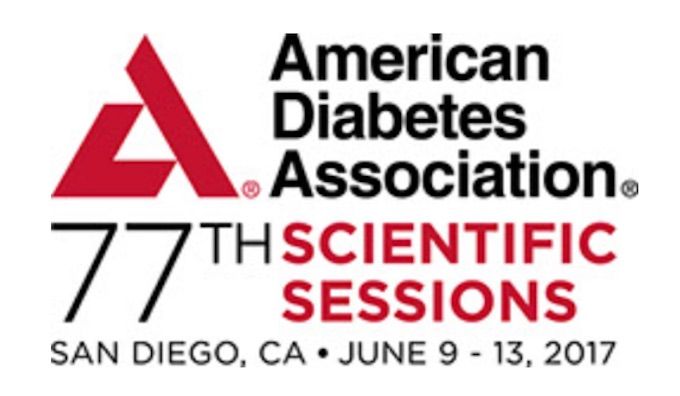ODYSSEY DM-DYSLIPIDEMIA Results Presented at ADA 77th Scientific Sessions
ODYSSEY DM-DYSLIPIDEMIA is 1 of 2 studies on alirocumab presented at ADA Scientific Sessions.

The eagerly anticipated results of 2 ODYSSEY trials were presented this morning at the ADA 77th Scientific Sessions in San Diego.
According to both studies, alirocumab (Praluent/Sanofi, Regeneron), a proprotein convertase subtilisin/kexin type 9 (PCSK9) inhibitor, reduces low-density lipoprotein cholesterol (LDL-C) levels and non-high-density lipoprotein cholesterol (non-HDL-C) in patients with type 2 diabetes (T2D).
Patients with T2D are more prone to abnormal cholesterol levels, which can cause an increased risk for cardiovascular disease (CVD). PCSK9 is a protein known to reduce the activity of the liver receptors that bind and break down cholesterol in the blood. As a PCSK9 inhibitor, alirocumab is an US Food & Drug Administration (FDA)-approved monoclonal antibody that prevents the PCSK9 protein from inhibiting these liver receptors, allowing it to break down more cholesterol and lowering cholesterol levels.
“Cardiovascular disease is a significant cause of morbidity and mortality in people with type 2 diabetes,” said lead investigator Robert R. Henry, MD, professor of medicine in the division of endocrinology and metabolism at the University of California San Diego, and chief of the endocrinology, metabolism, and diabetes section and the Center for Metabolic Research at the VA Medical Center in San Diego. “Mixed dyslipidemia is commonly present in these patients and further increases their cardiovascular risk.”
During the “Inhibition of PCSK9 in Dyslipidemia Patients with Diabetes” symposium, attendees heard the study design and insights of the large-scale ODYSSEY program, which comprised numerous trials investigating the medication’s efficacy.
In the Efficacy and Safety of Alirocumab Versus Usual Care on Top of Maximally Tolerated Statin Therapy in Patients With Type 2 Diabetes and Mixed Dyslipidemia (ODYSSEY DM-Dyslipidemia) international trial, the randomized, open-label, parallel group study focused on investigating the efficacy and safety of alirocumab versus usual care in patients with T2D and mixed dyslipidemia at high cardiovascular risk.
Usual care was defined as receiving either no additional lipid lowering therapy or ezetimibe, fenofibrates, omega-3 fatty acids, and nicotinic acid.
The patients in the study group had established atherosclerotic CVD or at least 1 other cardiovascular risk factor, and inadequately controlled non-HDL-C on the maximally tolerated dose (MTD) of statin therapy.
Mixed dyslipidemia was defined as elevations in non-HDL-C and triglyceride levels that are often accompanied by low levels of HDL-C.
The study enrolled 413 patients with T2D in 110 centers from the United States, Europe, South America, the Middle East, Australia, and the United Kingdom for a 24-week treatment period and an 8-week safety follow-up period.
Patients were randomly assigned to receive either 75 mg of alirocumab administered via an auto-injector every 2 weeks or usualcare in a 2:1 ratio. Patients randomized to the alirocumab group but not achieving adequate reduction in non-HDL-C at 12 weeks had their alirocumab dosage increased to 150 mg in a blinded dose.
The primary endpoint of the trial, the difference between treatment arms in percentage change of non-HDL-C from baseline to week 24, was met.
After 24 weeks, the data indicate that alirocumab significantly reduced the non-HDL-C by 37.3% compared to 4.7% for usual care. The mean difference between the 2 treatment arms was 32.5% (P < .0001). Additionally, the patients who received alirocumab had improvement in other lipid parameters compared with the patients in the usual care group.
Alirocumab combined with MTD reduced measured LDL-C by 43.3% from baseline at week 24, compared with a 0.3% increase in the patients receiving usual care (P < .0001).
Treatment was generally well-tolerated, and the number of adverse events was generally similar between the 2 treatment arms. Further, alirocumab did not affect glycemic control as assessed by fasting plasma glucose, and hemoglobin A1C. Glucose-lowering treatments remained stable over time in both treatment groups.
“The ODYSSEY-DM-DYSLIPIDEMA study is the first trial that directly compares a PCSK9 inhibitor with usual care in patients with type 2 diabetes who have lipid disturbances,” Henry said. “The results of our study will assist clinicians in the management of mixed dyslipidemia, which is a persistent challenge in clinical practice, for patients with type 2 diabetes.”